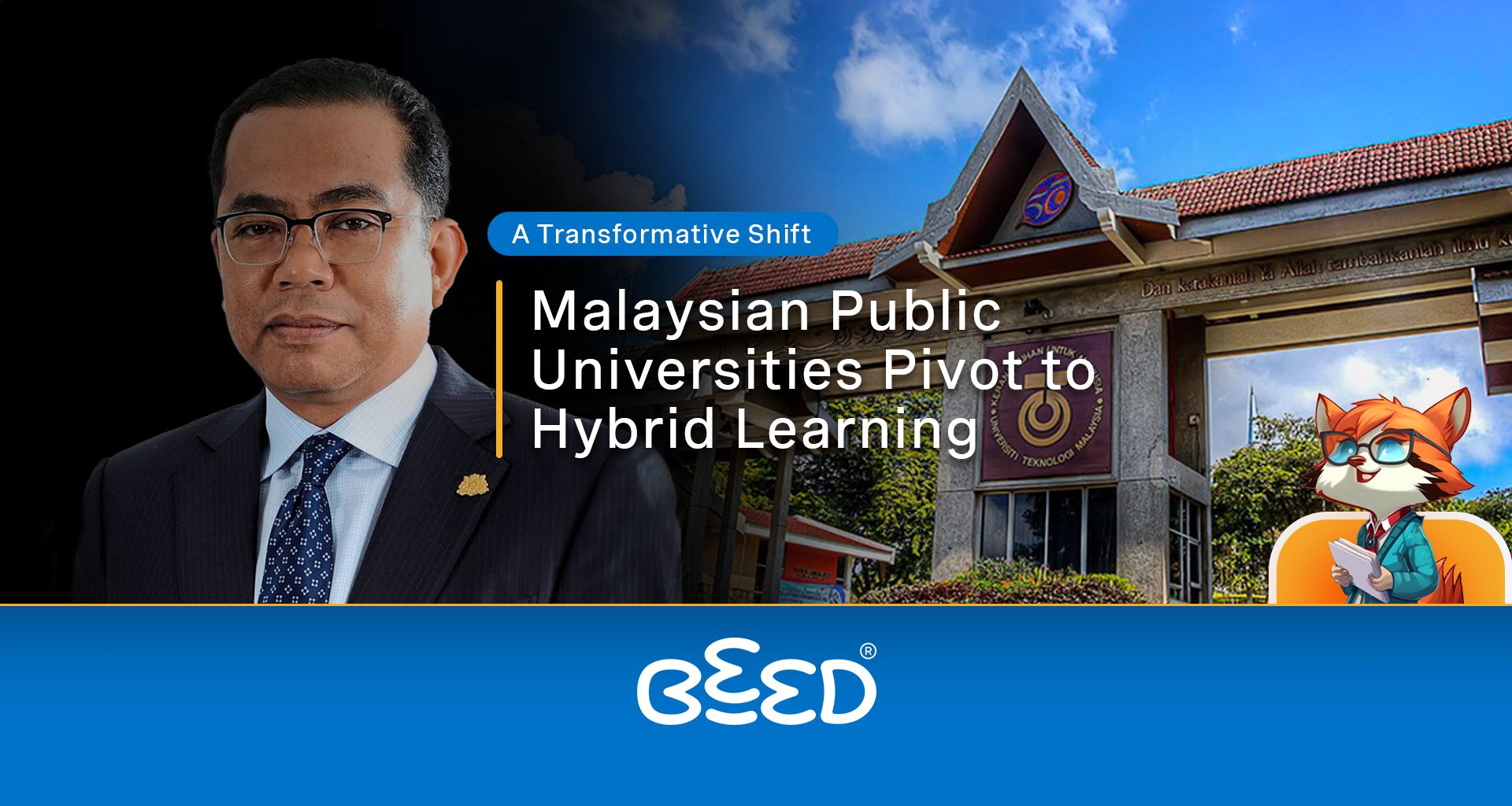Malaysian Public Universities Pivot to Hybrid Learning

Hybrid education is to be introduced in Malaysian public universities.
In a recent announcement, the Higher Education Minister, Datuk Seri Mohamed Khaled Nordin, stated that public universities in Malaysia will soon introduce a hybrid and adaptable educational system. Under this system, learners will be required to attend physical classes only in the first and final year of their studies, with the remaining years conducted online.
This move is aimed at making higher education more accessible and affordable for learners, as well as preparing them for the future of work, which is increasingly remote and hybrid.
Datuk Seri Mohamed Khaled Nordin said that the hybrid education system will be implemented in a phased manner, starting with selected universities in the 2023–2024 academic session. All public universities are expected to have implemented the hybrid system by the 2025/2026 academic session.
The hybrid education system will offer learners many benefits, including:
Flexibility: Learners will be able to learn at their own pace and on their schedule.
Accessibility: Learners from all over Malaysia will be able to access high-quality education without having to move to a major city.
Affordability: The cost of hybrid education is expected to be lower than the cost of traditional on-campus education.
Preparation for the future of work: Learners will be exposed to the latest technologies and learning methods, which will prepare them for the future of work.
While the hybrid education system offers many benefits, it is important to note that it also presents some challenges. For example, learners will need to be self-disciplined and motivated to succeed in a hybrid learning environment. Additionally, universities will need to invest in the necessary infrastructure and resources to support hybrid learning.
Overall, the introduction of hybrid education in Malaysian public universities is a positive development. It is expected to make higher education more accessible, affordable, and relevant to the needs of the future workforce.

BeED's role in supporting hybrid education
BeED is an educational technology platform that provides learners and teachers with the tools they need to succeed in a hybrid learning environment. BeED's platform offers a variety of features, including:
Personalised learning: BeED's platform allows learners to learn at their own pace and on their own terms.
Interactive content: BeED's platform offers a variety of interactive content, such as videos, simulations, and games, to help learners learn effectively.
Collaboration tools: BeED's platform offers a variety of collaboration tools, such as discussion forums and group projects, to help learners learn from each other.
Data analytics: BeED's platform provides teachers with data analytics to help them track learner progress and identify areas where learners need additional support.
BeED is committed to supporting the introduction of hybrid education in Malaysian public universities.
BeED is working with several universities to develop and implement hybrid learning programs. BeED is also providing training to teachers on how to use BeED's platform effectively in a hybrid learning environment.
BeED believes that hybrid education is the future of education. BeED is committed to helping Malaysia achieve its goal of becoming a global leader in hybrid education.